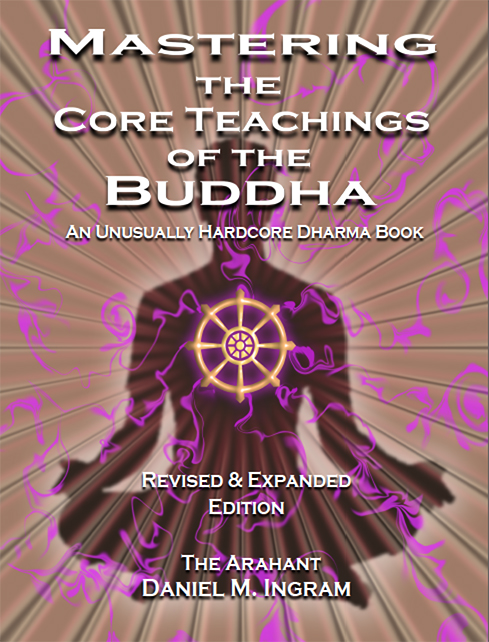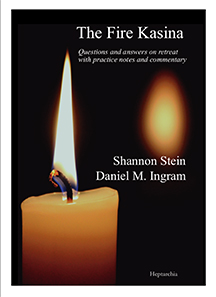Argentina, 1985 on 123movies: A Courageous Battle for Justice
The flickering light of the desk lamp casts long shadows across my living room here in Prague. Piles of textbooks and student essays sit beside me, a familiar landscape for a history teacher. Tonight, I was outlining a lesson on post-war justice and how nations reckon with their darkest chapters. It’s a heavy topic, and one that often meets with a wall of youthful indifference. To them, the ghosts of the 20th century are just names and dates in a book. How do you make them feel the weight of it? How do you explain the courage it takes for ordinary people to stand up to monstrous power, not with weapons, but with laws and words, especially when the memory is still raw and the monsters still cast a shadow? It’s a question that sits at the very heart of my profession.
It was with these thoughts swirling in my mind that I turned to Santiago Mitre’s masterful film, Argentina, 1985. This is not a distant, academic historical text; it is a vibrant, breathing, and profoundly human story about one of the most important trials of the last century. The film plunges the viewer into the heart of a fragile, nascent democracy grappling with an impossible task: prosecuting the leaders of its own recent, brutal military dictatorship. It’s a cinematic testament to the idea that justice, however daunting, is not just a concept, but a fight that must be waged by real, flawed, and terrified people.
The Trial of the Juntas: A Story of Unlikely Heroes
 The film centers on the true story of Julio Strassera, a weary, unassuming public prosecutor who, to his own surprise and dismay, is tasked with leading the case against the architects of Argentina’s bloodiest military regime. After years of looking the other way and focusing on a quiet family life, Strassera is thrust into the national spotlight. The task is monumental. The military still holds immense power, threats are constant, and the legal establishment is either too scared or too compromised to help. The story follows Strassera as he assembles a team of young, inexperienced but idealistic lawyers—a group later dubbed the "kids"—because no seasoned professional would touch the case.
The film centers on the true story of Julio Strassera, a weary, unassuming public prosecutor who, to his own surprise and dismay, is tasked with leading the case against the architects of Argentina’s bloodiest military regime. After years of looking the other way and focusing on a quiet family life, Strassera is thrust into the national spotlight. The task is monumental. The military still holds immense power, threats are constant, and the legal establishment is either too scared or too compromised to help. The story follows Strassera as he assembles a team of young, inexperienced but idealistic lawyers—a group later dubbed the "kids"—because no seasoned professional would touch the case.
What follows is a gripping procedural that is equal parts legal thriller, character study, and historical drama. We witness the team frantically gathering evidence, interviewing the traumatized victims of torture, kidnapping, and murder, and navigating a minefield of political intimidation. Mitre masterfully builds the tension not through cheap thrills, but through the accumulation of detail: the clicking of a phone tap, a car that lingers too long on the street, the fearful glance of a witness. The narrative brilliantly captures the David-and-Goliath nature of the trial, a seemingly hopeless battle against a system of institutionalized terror, where the only weapons are due process and the power of testimony.
The Faces of Justice: Casting and Performances
A film like this lives or dies on the conviction of its central performances, and the cast here is flawless. The legendary Ricardo Darín, an actor who can convey a universe of emotion with a single weary sigh, is perfect as Julio Strassera. He embodies the prosecutor not as a superhero, but as an ordinary man burdened by an extraordinary responsibility. We see his fear, his doubt, his frustration with his family, and the slow, dawning realization that he is part of something historically vital. Darín makes Strassera’s transformation from a cynical bureaucrat to a pillar of moral courage feel entirely earned and deeply moving.
Playing opposite him is the brilliant Peter Lanzani as the young, sharp, and more idealistic deputy prosecutor, Luis Moreno Ocampo. Coming from a conservative, military-connected family, Ocampo’s decision to join the prosecution is an act of rebellion in itself. The chemistry between Darín and Lanzani is the film's anchor. They bicker, challenge, and ultimately support one another, their dynamic providing both warmth and humor that serves as a necessary release valve for the film's immense tension. Their partnership represents the bridging of a generational gap, a joining of weathered experience and youthful fire needed to move a nation forward.
Key Film Credits
- Director: Santiago Mitre
- Screenplay by: Santiago Mitre, Mariano Llinás
- Starring: Ricardo Darín (as Julio Strassera), Peter Lanzani (as Luis Moreno Ocampo)
- Producers: Ricardo Darín, Santiago Mitre, Agustina Llambi Campbell, Axel Kuschevatzky
- Cinematographer: Javier Juliá
- Production Company: La Unión de los Ríos, Kenya Films, Infinity Hill
Crafting Authenticity: Mitre’s Direction and Style
Santiago Mitre’s direction is a masterclass in balance. He avoids the dreary, self-important tone that can often plague historical dramas. Instead, he infuses the film with a surprising amount of life, humor, and domestic warmth, reminding us that history is made by people who also have to deal with nagging kids and leaky faucets. This approach makes the film incredibly accessible and relatable. The cinematography by Javier Juliá perfectly recreates the look and feel of the 1980s, all beige tones and cigarette smoke, grounding the film in a tangible, authentic reality. It feels less like a historical reenactment and more like a story unfolding before our eyes, a quality that makes it a standout discovery for anyone Browse for compelling cinema on a platform like 123movies.
The film’s climax, Strassera’s closing argument in the courtroom, is an all-time great movie moment. Mitre expertly intercuts Strassera’s powerful speech with archival footage and the faces of the judges, the accused, and the victims’ families. It is a devastating and ultimately cathartic sequence that lands with the force of a physical blow, culminating in his now-famous sign-off: "Señores jueces: Nunca más." ("Judges: Never again.")
A Resounding Verdict: Reception and Global Impact
The film didn't just resonate with critics; it became a cultural phenomenon. In its home country, it was a massive box office success, a collective cinematic experience for a nation still processing its history. But its themes of justice, memory, and accountability proved to be universal. The film received near-universal acclaim, boasting a stunning 96% "Certified Fresh" rating on Rotten Tomatoes. It went on to win the Golden Globe for Best Non-English Language Film and was nominated for the same category at the Academy Awards. The high audience scores on IMDb and other platforms show that its appeal goes far beyond the arthouse crowd; this is a film for everyone. Its wide availability on streaming services, including being a sought-after title on 123movies, has allowed its vital message to reach a global audience, proving that a story rooted in one nation’s specific pain can speak a language everyone understands.
As the credits rolled, I was left sitting in the quiet of my Prague apartment, the lesson plan for tomorrow seeming more urgent than ever. Argentina, 1985 is more than just a great film; it's a powerful educational tool. It's the answer to the question of how we make history matter. We do it by telling the human stories, by showing the fear and the doubt alongside the immense courage. We do it by reminding the next generation that democracy is not a given and that justice is not inevitable—it must be fought for. Strassera’s closing words, "Never again," echoed in my mind. It’s a promise one generation makes to the next, and this film is a magnificent, essential part of keeping that promise.
Argentina, 1985: Film Fact Sheet
Critical Reception:
Rotten Tomatoes: 96% (Certified Fresh)
Metacritic: 78/100
Audience Scores:
IMDb Rating: 7.9/10
TMDb Score: 81%
Box Office Performance:
Worldwide Gross: Approx. $10.1 million (primarily from international theatrical runs, as it was an Amazon Prime Video original)
Major Awards and Nominations:
Academy Awards: Nominee, Best International Feature Film
Golden Globe Awards: Won, Best Motion Picture – Non-English Language
BAFTA Awards: Nominee, Best Film Not in the English Language
Goya Awards: Won, Best Ibero-American Film
Venice Film Festival: Won, FIPRESCI Prize
Source: https://123movies26.com

